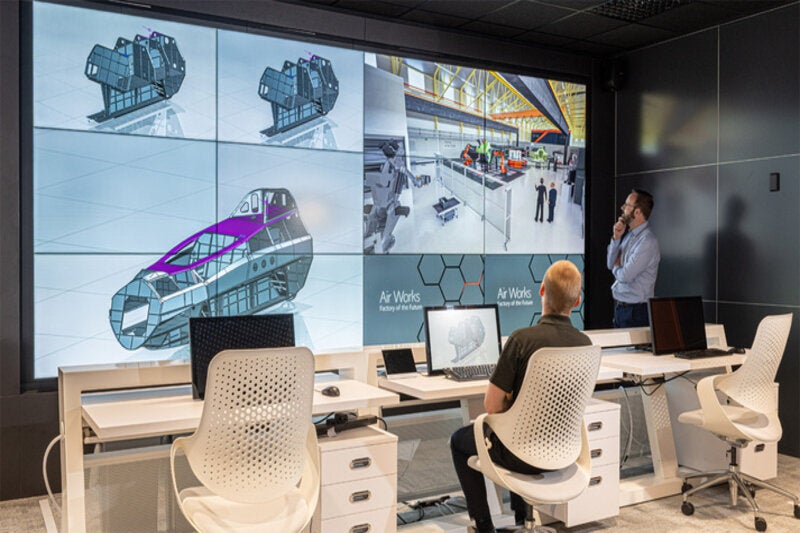
BAE Systems has collaborated with 40 blue chip, small and medium-sized enterprises (SMEs) and academic institutions to build a smart factory to advance production on the UK’s next-generation combat aircraft system, Tempest.
The new 4.0 facility is located at the company’s site in Warton, Lancashire.
By combining advanced manufacturing technologies, the factory aims to transform engineering processes. It is digitally connected and will be used for future military aircraft production.
Automated robots, virtual and augmented reality at the factory will increase speed, precision and efficiencies of the process.
Furthermore, they will reduce the costs of manufacturing of complex military aircraft structures.
Using an innovative approach, operations in the factory will be performed by humans and machines collectively.

US Tariffs are shifting - will you react or anticipate?
Don’t let policy changes catch you off guard. Stay proactive with real-time data and expert analysis.
By GlobalDataCobotic and flexible robotic technologies will replace heavy, fixed, long-lead tooling and swiftly move items from one platform to another.
Modification of robotic technology from the automotive industry will allow operation at the precise tolerances required for military aircraft.
This will allow operators to primarily focus on highly skilled and strategic tasks and oversee operations from a digitised, virtual office.
Under the UK-led Tempest programme, the new facility will deliver cost-effective solutions within short durations.
Developed in collaboration with the University of Sheffield’s Advanced Manufacturing Research Centre (AMRC) and Fairfield Control Systems, the intelligent workplace is in use on the Typhoon production line.
It uses a system to automatically deliver tailored instructions using technologies for the production and assembly of Typhoon aircraft parts.
BAE Systems Air manufacturing director Dave Holmes said: “We’ve collaborated with the best of UK industry and academia to develop a cutting-edge facility that combines current and emerging technologies, ensuring the UK remains at the forefront of combat air technology development.
“Driving our manufacturing capabilities forward as we prepare for the fourth industrial revolution, will sustain and develop critical skillsets and ensure we can continue to deliver military capability to address future threats, whilst improving productivity and delivering value for money for our customers.”



